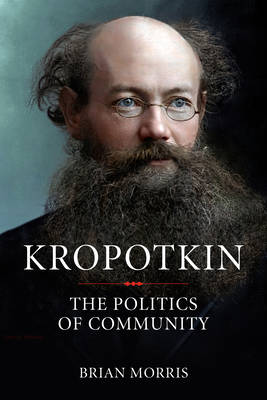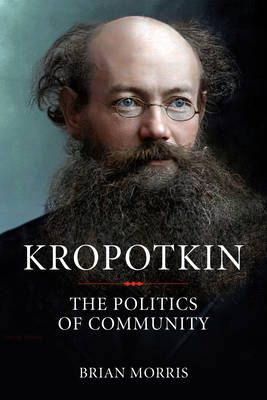
- Retrait gratuit dans votre magasin Club
- 7.000.000 titres dans notre catalogue
- Payer en toute sécurité
- Toujours un magasin près de chez vous
- Retrait gratuit dans votre magasin Club
- 7.000.0000 titres dans notre catalogue
- Payer en toute sécurité
- Toujours un magasin près de chez vous
Description
The nineteenth century witnessed the growth of anarchist literature, which advocated a society based on voluntary cooperation without government authority. Although his classical writings on mutual aid and the philosophy of anarchism are still published today, Peter Kropotkin remains a neglected figure. A talented geographer and a revolutionary socialist, Kropotkin was one of the most important theoreticians of the anarchist movement.
In Kropotkin: The Politics of Community, Brian Morris reaffirms with an attitude of critical sympathy the contemporary relevance of Kropotkin as a political and moral philosopher and as a pioneering social ecologist. Well-researched and wide-ranging, this volume not only presents an important contribution to the history of anarchism, both as a political tradition and as a social movement, but also offers insightful reflections on contemporary debates in political theory and ecological thought. After a short biographical note, the book analyzes in four parts Kropotkin's writings on anarchist communism, agrarian socialism, and integral education; modern science and evolutionary theory; the French Revolution and the modern state; and possessive individualism, terror, and war.
Standing as a comprehensive and engaging introduction to anarchism, social ecology, and the philosophy of evolutionary holism, Kropotkin is written in a straightforward manner that will appeal to those interested in social anarchism and in alternatives to neoliberal doctrines.
Spécifications
Parties prenantes
- Auteur(s) :
- Editeur:
Contenu
- Nombre de pages :
- 320
- Langue:
- Anglais
Caractéristiques
- EAN:
- 9781629635057
- Date de parution :
- 01-06-18
- Format:
- Livre broché
- Format numérique:
- Trade paperback (VS)
- Dimensions :
- 150 mm x 226 mm
- Poids :
- 417 g

Les avis
Nous publions uniquement les avis qui respectent les conditions requises. Consultez nos conditions pour les avis.






